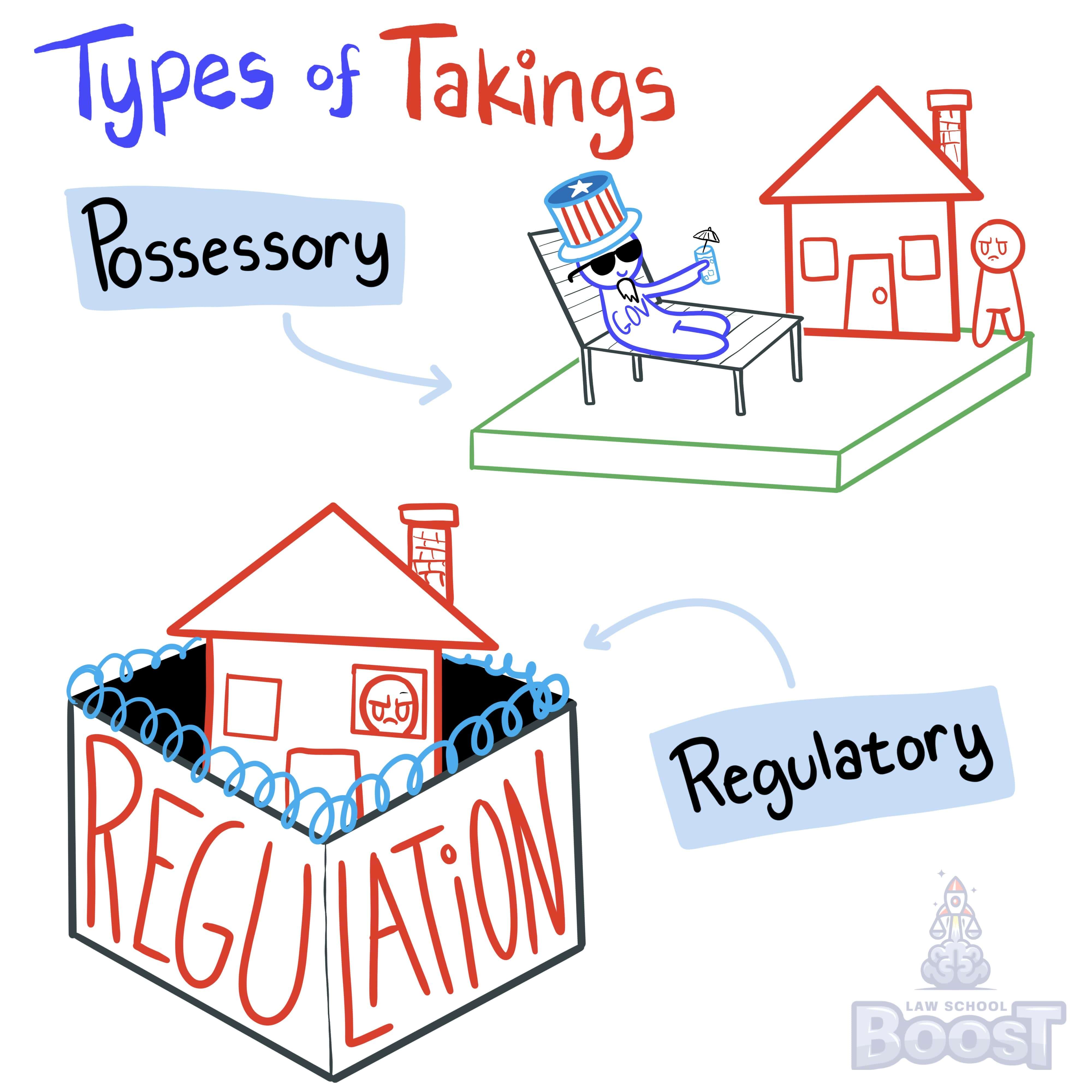🇺🇸
Constitutional Law • Takings
CONLAW#068
Legal Definition
Where the government temporarily denies an owner of the use of property, it is not taking so long as the government's action is reasonable. A court will examine and weigh all the relevant circumstances to determine if fairness and justice require just compensation.
Plain English Explanation
The Constitution says the government can't take private property without paying for it. But if the government is just temporarily restricting use, rather than permanently taking the property, they may not have to pay.
For example, let's say the city needs to do construction on a road that goes past Bob's house. During construction, Bob won't be able to access his driveway or even leave his house for 6 months. Should the city have to pay Bob for this major inconvenience? Under this rule, the court would look at all the circumstances to decide what's fair. The court would see if the city is acting in good faith to finish the construction quickly. The court would consider that an average homeowner like Bob would expect some road work near his home over the years. The court would note the 6 month delay is pretty long. And the court would assess how much harm the delay caused to the value of Bob's property. Weighing all these factors, the court would then decide if the city owes Bob compensation for the temporary denial of accessing his home.
The key point is that government actions restricting private property use must be reasonable and fair. If so, compensation may not be required even though the owner cannot use their property for a period of time. This allows the government some flexibility to do things like construction projects for the public good without having to pay massive amounts of money to property owners for temporary disruptions.
For example, let's say the city needs to do construction on a road that goes past Bob's house. During construction, Bob won't be able to access his driveway or even leave his house for 6 months. Should the city have to pay Bob for this major inconvenience? Under this rule, the court would look at all the circumstances to decide what's fair. The court would see if the city is acting in good faith to finish the construction quickly. The court would consider that an average homeowner like Bob would expect some road work near his home over the years. The court would note the 6 month delay is pretty long. And the court would assess how much harm the delay caused to the value of Bob's property. Weighing all these factors, the court would then decide if the city owes Bob compensation for the temporary denial of accessing his home.
The key point is that government actions restricting private property use must be reasonable and fair. If so, compensation may not be required even though the owner cannot use their property for a period of time. This allows the government some flexibility to do things like construction projects for the public good without having to pay massive amounts of money to property owners for temporary disruptions.
Hypothetical
Hypo 1: Bob plans to build a luxury hotel on his property. However, Hypofornia city temporarily stops all construction in the area, including Bob's project, for 6 months while they conduct environmental studies. Result: Since the delay is reasonable and part of good faith environmental protection efforts, and assuming the delay does not drastically impact the property's value, this is not considered a taking. Bob is not entitled to compensation.
Hypo 2: Sam is about to start a farming business on his newly bought land when New Hypoland state temporarily restricts water usage in his area due to a drought, delaying his farming plans for a year. Result: Given the state's good faith action in response to a natural disaster and the temporary nature of the restriction, this would likely not be considered a taking. Sam would not receive compensation.
Hypo 3: Bob's property is frozen from development by the city for two years as they debate a new highway project, significantly affecting its value. Result: This extended delay, especially if it significantly lowers the property's value and goes beyond reasonable planning needs, might be seen as a taking. Bob may be entitled to compensation for the unreasonable interference.
Hypo 4: Bob's land is next to a public school, and New Hypoland passes a temporary ordinance forbidding any construction within 500 meters of schools while they conduct a year-long traffic study. This ordinance delays Bob's plans to build an apartment complex on his land for over a year, significantly reducing its rental income potential. Result: Given the extended delay and the significant impact on Bob's expected rental income, this might be considered an unreasonable interference with his property use. Bob may be entitled to compensation for the loss in value and income.
Hypo 2: Sam is about to start a farming business on his newly bought land when New Hypoland state temporarily restricts water usage in his area due to a drought, delaying his farming plans for a year. Result: Given the state's good faith action in response to a natural disaster and the temporary nature of the restriction, this would likely not be considered a taking. Sam would not receive compensation.
Hypo 3: Bob's property is frozen from development by the city for two years as they debate a new highway project, significantly affecting its value. Result: This extended delay, especially if it significantly lowers the property's value and goes beyond reasonable planning needs, might be seen as a taking. Bob may be entitled to compensation for the unreasonable interference.
Hypo 4: Bob's land is next to a public school, and New Hypoland passes a temporary ordinance forbidding any construction within 500 meters of schools while they conduct a year-long traffic study. This ordinance delays Bob's plans to build an apartment complex on his land for over a year, significantly reducing its rental income potential. Result: Given the extended delay and the significant impact on Bob's expected rental income, this might be considered an unreasonable interference with his property use. Bob may be entitled to compensation for the loss in value and income.
Visual Aids


Related Concepts
Can a property owner challenge pre-existing regulations?
How is just compensation measured?
May the federal government take private property?
What is a possessory taking?
What is a regulatory taking?
When are government conditions on development a taking?
When is property considered to have been taken for public use?


